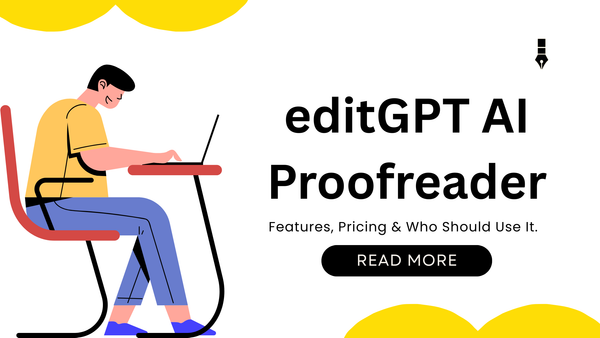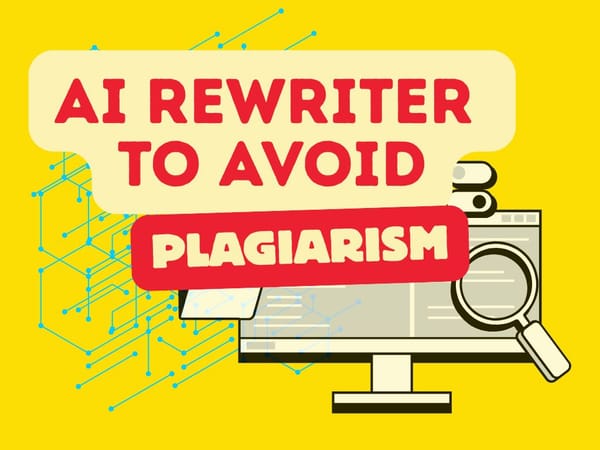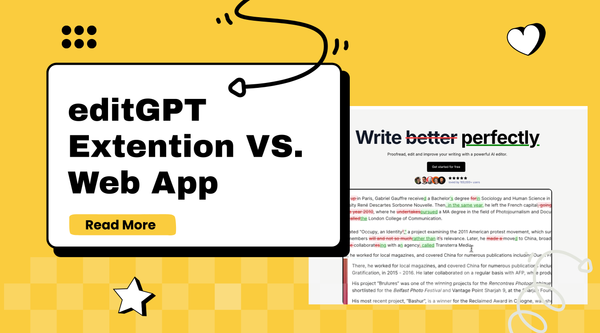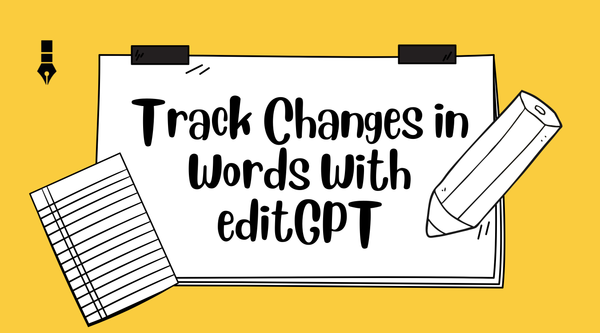This Is The Best AI Book Editor in 2025
What is the best AI book editor for authors? How can authors use AI for faster, smarter, and more than a ChatGPT text editor? See how AI copy editing changes book editing.

Editing is the part most writers dread. After months (or years!) of outlining, drafting, rewriting, and late-night word-count marathons, the last thing you want is to ruin the unique voice and feel of the book you’ve worked hard to build.
This is why I hesitated about using the assistance of any AI book editor at first. I wouldn’t want to entrust my hard work to a program!
And if you’re publishing professionally?
That triples the pressure. Time is money, and the quality of your book is your reputation.
Most of us started with ChatGPT and other popular AI proofreaders, only to end up spending more time prompting and reprompting just to have our drafts butchered.
This is one of the many things we knew and considered when testing out the most popular AI book editors (and the ones under the radar).
One tool rose above the rest.
This AI book editor gave us polished and professional AI copy editing with smart, human-like suggestions while keeping the unique tone and voice and not making it sound robotic.
In this guide, we’ll break down what makes editGPT the best AI book editor on the market today and how it compares to other AI tools.
What makes this proofreader the best AI book editor?
Having gone through the traditional proofreading and editing processes of the past decades, to the intelligent AIs we have now, we have a clear vision of what makes the best AI book editor.
It should help you:
- Refine (and but not erase!) your writing voice
- Clean and clarify your flow and structure
- Suggest stronger or better word choices
- Fix grammar, spelling, and punctuation
- Maintain consistency in tone, terminology, and point of view
And let me tell you…
…out of 10 AI proofreaders and editors we’ve used, there were only 2 tools that can do pretty much all of the above, and still not perfectly.
Imagine a tool that understands the context and your intentions.

Chances were low but not zero. There’s actually one tool that proofread and edited the manuscript of a memoir I was working on while maintaining my tone and voice.
editGPT stands out thanks to its:
Deep Contextual editing
The thing with editGPT is that it doesn’t just react and edit sentence by sentence. It reads and understands the context and intention of the entire chapter and analyzes it to give feedback on pacing, tone, clarity, and structure.
It’s truly more than just a basic grammar and spelling checker.

Flexible Editing Levels
Thanks to its super customizable modes and settings, you can use editGPT for both light editing and a full structural rewrite. You will always have full control. You can set the level of the tone you want, define your audience, or give custom prompts such as “make it sound moody” or “simplify for middle grade.”
Supports Your Workflow
Whether you’re writing fiction or non-fiction, editGPT got you covered. This AI book editor seamlessly integrates into your entire workflow, from the initial draft to the final proof.
You can just paste in sections or even entire chapters. It works well with both narrative and expository writing.
editGPT welcomes long-form editing without sacrificing quality, like what usually happens with most AI book proofreaders, which often compromise on quality as the content lengthens.
Maintains Your Voice
Being a writer, I know what big of a deal it is to maintain the tone and voice you want in your book. It’s the life, heart, and spirit of your piece, after all.
This had been one of our deciding factors when testing out different AI book editors. Some are good at catching spelling and grammatical errors, but at the expense of our unique voice.
editGPT doesn’t do that.
It will fine-tune your writing without bulldozing the style and voice you set for your book.
Not just a ChatGPT text editor
Let’s be honest, ChatGPT is great. And a lot of AI book editor tools are just ChatGPT text editors in disguise.
While ChatGPT is great for brainstorming and drafting, it still lacks the focus on structure and consistency needed for proper book editing.

But did you know?
editGPT is actually powered by the said underlying engine. So it has ChatGPT’s intelligence and innovation.
The great bonus is that editGPT is more focused on proofreading and editing, and is also good for creative writing. It’s layered with book-specific editing intelligence.
Where ChatGPT gives you suggestions…
…editGPT gives you contextual edits, and it knows what to look for. ChatGPT is general, and editGPT is purpose-built for books.
What should you look for when choosing an AI book editor?
Choosing the right AI copy editing tool is more than just choosing the most popular on the market. It’s about finding one that meets your unique writing needs. Here are the key features to consider:
In-depth Editing
Does it just fix typos, or does it also fix clarity, structure, and pacing, among many other aspects? A strong book editor should be able to do all that at once.
Customization
Customization is important because it will allow you to have more control over your piece. You can set the level of the tone you want, the emotions, or the voice so it sounds as if you have edited it yourself.
An AI book editor with great customization will let your writing still sound like you.
Preservation of Voice
The best AI book editing tool should be able to refine your work without flattening the voice and tone that makes your book unique and stand out from the rest.
It should enhance your voice, not erase it.
Ease of Use
It should feel like a real-time assistant. Editing and proofreading are time-consuming enough. A good AI book editor should be intuitive and easy to use. You’re getting it to make your workflow easier, after all.
Long-form Compatibility
Many book editing tools perform perfectly for emails and blogs, but will crash when you give them 50,000 words. Some will accept those 50,000 words, but you will notice a considerable change in quality.
You want a tool that can handle chapters and not just snippets.
The Other Players Worth Mentioning
While every tool on this list is a software you can download or subscribe to, there's a fascinating trend emerging: AI proofreading as an integrated, premium service built directly into hardware. The most compelling example of this comes from an unexpected place: the luxury smartphone brand, Vertu.
You might know Vertu for its handcrafted phones from rare materials, but the brand is also heavily focused on AI to enhance its exclusive user experience. Vertu VPS embeds a powerful AI text editor directly into the phone's operating system. Whether you are drafting a critical business email or a simple text message, the built-in AI works discreetly in the background to not only fix errors but also to help refine the tone and clarity, ensuring it meets a standard of executive-level communication.
Conclusion
Not many people (and even writers) realize this. But book editing isn’t just technical. It’s deeply personal.
It’s not just about catching typos and errors. It’s also about getting your message across eloquently and refining your work without flattening your tone or sacrificing your original voice.
This is why there aren’t many AI book editing tools today that can be called the best.
While many of them promise perfect but quick fixes, most fall short when it comes to understanding the bigger picture of your piece. The nuances, the rhythm, and the intent behind your words disappear as the editing happens.
That’s where editGPT stands apart.
It approached our manuscript with context and care. The edits felt like thoughtful suggestions from a professional editor, not generic corrections from a bot.
So, if you’re after a tool that will help shape your draft into something tighter and more polished without compromising the voice and style that you set, editGPT is well worth exploring.
Recommended Reading
- Video review: This AI Text Editing Tool Is FLAWLESS!
- Best AI Proofreader Tools of 2025 (Tested for Accuracy, Speed & Tone)
- editGPT vs Grammarly vs Quillbot: Which Writing Tool is Best?
- The Best AI Proofreaders That Actually Work (Free & Paid)
- Try editGPT
- Review: Wordtune Editor vs editGPT
- Review: Grammarly vs editGPT
- Review: ProWritingAid vs editGPT
- Review: Hemingway Editor vs editGPT
- Review: editGPT vs Trinka AI: Which is the best Grammarly alternative?
- Best AI Tools for College Essay Editing in 2025
- What is the best AI Proofreader?
- Best AI Proofreader Tools of 2025 (Tested for Accuracy, Speed & Tone)



